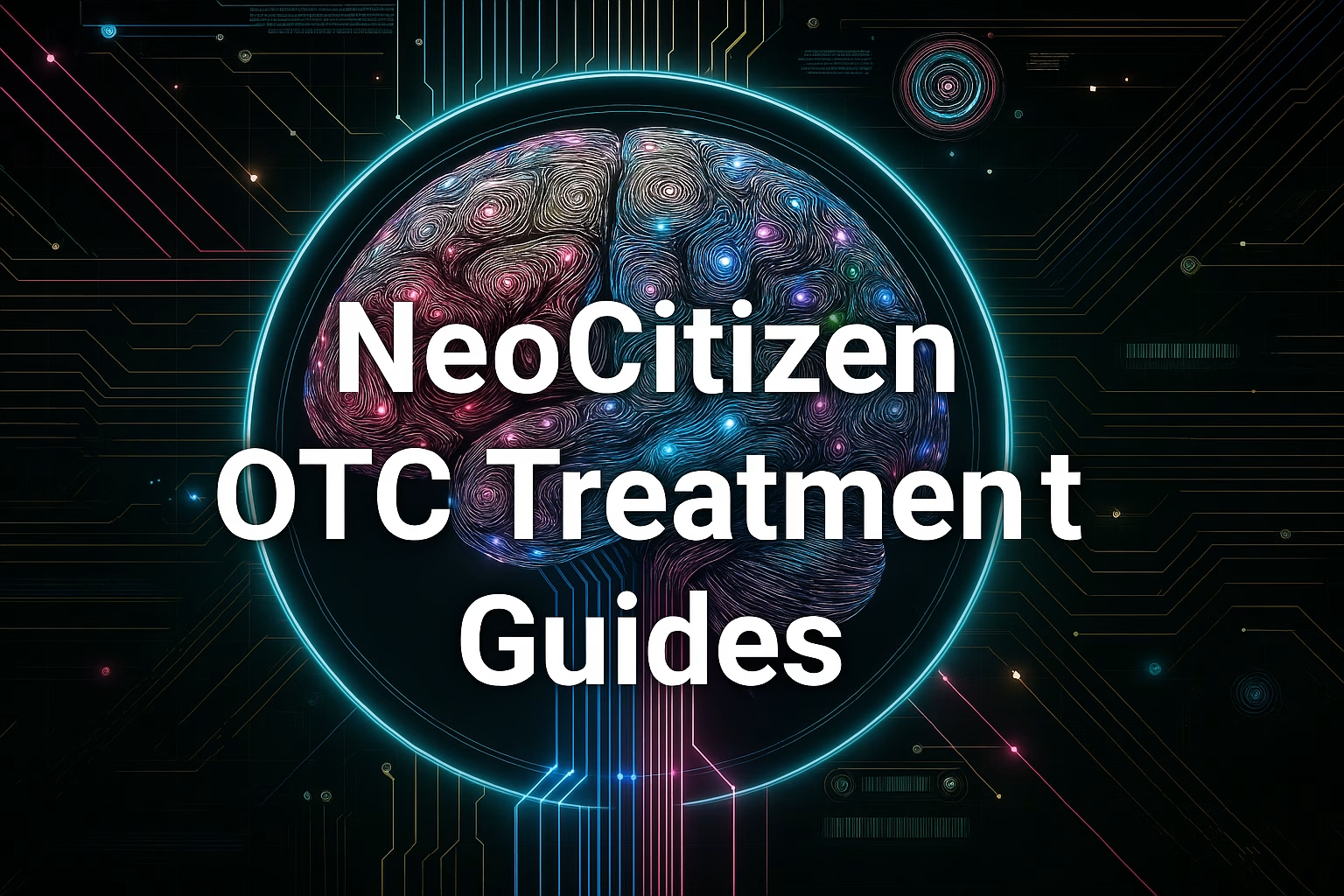
Heart attacks and strokes are two of the leading causes of death worldwide—and they often strike without warning. For people who have already experienced one of these serious events, the risk of a second incident is significantly higher. That’s where low-dose aspirin comes in.
Low-dose aspirin (usually 81 mg) is a widely recommended therapy for secondary prevention—which means it helps prevent a repeat heart attack or stroke. It works by preventing blood clots, which are a common cause of these conditions. Aspirin does this by stopping platelets (tiny blood cells) from sticking together and forming blockages in the arteries.
But not all aspirin products are created equal.
From coatings that protect your stomach to formats like chewables or generics that offer the same protection at a lower price—there are many options on the shelf. This guide will help you understand the differences and choose the best low-dose aspirin for your needs, with pharmacist-recommended options, clear pros and cons, how each product works, and expert counseling tips to help you use them safely and effectively.
Whether you’re looking for a trusted brand like Bayer or a budget-friendly store label, we’ve got you covered.
In this article, we compare the top 10 low-dose aspirin products for secondary cardiovascular prevention, based on pharmacist recommendations. These reviews include active ingredients, how they work, unique features, pros and cons, common side effects, and important counseling points.
🩺 What Causes Recurrent Heart Attacks and Strokes?
Understanding the Root of the Problem
Recurrent heart attacks and strokes usually happen because the underlying risk factors remain unaddressed or new blood clots form in narrowed or damaged arteries. Here are the most common causes:
- Plaque Buildup (Atherosclerosis): Fatty deposits harden and narrow the arteries, restricting blood flow.
- High Blood Pressure: Forces your heart to work harder, damaging blood vessels over time.
- High Cholesterol: Increases plaque formation in your arteries.
- Blood Clots: Platelets clump together and block blood flow—this is what aspirin helps prevent.
- Diabetes: High blood sugar damages blood vessels and promotes clotting.
- Smoking: Damages artery linings and increases clot risk.
- Lack of Physical Activity: Slows circulation and worsens other risk factors like cholesterol and blood pressure.
- Poor Diet: Diets high in saturated fat, salt, and sugar contribute to plaque buildup and inflammation.
- Missed Medications: Skipping your heart or blood pressure meds can trigger a recurrence.
The good news: Low-dose aspirin therapy helps reduce the chance of these clots forming again—but it works best when combined with healthy lifestyle changes and proper medical guidance.
🚨 Warning Signs of a Recurrent Heart Attack or Stroke
Know the Symptoms—Act Fast
Recognizing the early signs of a heart attack or stroke can save your life. If you’ve had one before, it’s critical to watch for these warning symptoms—they often return suddenly and may feel slightly different than your first episode.
🫀 Common Symptoms of a Recurrent Heart Attack:
- Chest pain or pressure (may feel like squeezing or heaviness)
- Pain in arms, neck, jaw, back, or stomach
- Shortness of breath, even without chest pain
- Cold sweat or clammy skin
- Nausea or lightheadedness
- Unusual fatigue or weakness
🧠 Common Symptoms of a Recurrent Stroke:
- Sudden numbness or weakness on one side of the body (face, arm, or leg)
- Trouble speaking or understanding speech
- Blurred or double vision in one or both eyes
- Loss of balance or coordination
- Severe headache with no known cause
- Dizziness or confusion
🕒 Time is critical. If you or someone else shows these symptoms, call emergency services immediately. Early treatment can prevent long-term damage or save a life.
Top 10 Low-Dose Aspirin Products for Secondary Prevention
#1. Bayer Low Dose Aspirin (81 mg)
- Active Ingredient: Aspirin 81 mg
- How it Works: Bayer’s aspirin inhibits COX-1 enzymes, reducing thromboxane A2 levels, which decreases platelet clumping.
- What Makes It Special: One of the oldest and most trusted aspirin brands. Clinically tested and recommended by physicians.
Pros:
- Trusted brand with decades of clinical use
- Enteric-coated to reduce stomach irritation
- Widely recommended by pharmacists
Cons:
- May still cause GI upset in sensitive individuals
- Delayed absorption due to coating
Side Effects:
- Stomach upset, heartburn, nausea, easy bruising, and rare gastrointestinal bleeding
Counseling Points:
- Take daily at the same time with food if GI discomfort occurs
- Do not crush or chew enteric-coated tablets
- Inform healthcare providers before surgeries or dental procedures
Learn more about Bayer Aspirin
#Aspirin #HeartHealth #StrokePrevention
#2. Ecotrin Safety Coated Aspirin (81 mg)
- Active Ingredient: Aspirin 81 mg
- How it Works: Like Bayer, it blocks COX-1 enzymes to prevent clot formation.
- What Makes It Special: Double-layer safety coating helps minimize stomach irritation.
Pros:
- Special enteric coating for sensitive stomachs
- Inexpensive
Cons:
- Enteric coating may delay onset in emergency use
Side Effects:
- Upset stomach, dizziness, potential for allergic reactions
Counseling Points:
- Use only for long-term prevention, not acute treatment
- Take with a full glass of water
- Monitor for signs of prolonged bleeding
Ecotrin Official Site
#LowDoseAspirin #CardiovascularCare
#3. St. Joseph Low Dose Aspirin (81 mg)
- Active Ingredient: Aspirin 81 mg
- How it Works: Blocks thromboxane production to reduce clotting.
- What Makes It Special: Chewable format allows quicker absorption—suitable in acute events when advised.
Pros:
- Chewable format for faster absorption
- Pleasant orange flavor
Cons:
- May irritate stomach more than enteric-coated forms
Side Effects:
- Mouth or throat irritation, GI distress, allergic reactions (rare)
Counseling Points:
- Ideal for those who have difficulty swallowing pills
- Can be taken during a suspected heart attack (only if instructed)
- Keep out of reach of children (attractive flavor)
Visit St. Joseph Aspirin
#ChewableAspirin #HeartAttackPrevention
#4. Kirkland Signature Low Dose Aspirin (81 mg)
- Active Ingredient: Aspirin 81 mg
- How it Works: Prevents platelets from clumping to reduce blood clot risk.
- What Makes It Special: Affordable, high-volume packaging great for long-term users.
Pros:
- Affordable bulk packaging
- Enteric-coated for stomach protection
Cons:
- Bulk size may be too large for occasional users
Side Effects:
- Mild GI upset, increased bleeding risk
Counseling Points:
- Store in a cool, dry place
- Monitor for signs of bleeding (bruises, bloody stools, gum bleeding)
- Take with food if stomach irritation occurs
#KirklandAspirin #HeartHealthSupport
#5. Rite Aid Aspirin Low Dose (81 mg)
- Active Ingredient: Aspirin 81 mg
- How it Works: Reduces clotting by decreasing thromboxane A2.
- What Makes It Special: Easy-to-read labeling and locally accessible through Rite Aid stores.
Pros:
- Budget-friendly pharmacy brand
- Easy-to-read labeling
Cons:
- May be less widely available outside Rite Aid stores
Side Effects:
- Potential nausea, increased risk of bleeding, allergic reactions
Counseling Points:
- Stick to the same brand for consistency
- Don’t skip doses; consistency is key
- Inform doctors and pharmacists about aspirin use
#PharmacyAspirin #HeartCare
#6. Walgreens Low Dose Aspirin (81 mg)
- Active Ingredient: Aspirin 81 mg
- How it Works: Lowers clotting activity by suppressing COX enzymes in platelets.
- What Makes It Special: Accessible and often discounted through Walgreens deals.
Pros:
- Enteric-coated to reduce stomach upset
- Often part of store promotions
Cons:
- Store brand variability in coating quality
Side Effects:
- Stomach pain, bleeding risk, rare ringing in ears
Counseling Points:
- Avoid alcohol to reduce GI risk
- Report unusual bruising or bleeding
- Notify provider before dental or surgical procedures
#WalgreensAspirin #CardioSupport
#7. CVS Health Low Dose Aspirin (81 mg)
- Active Ingredient: Aspirin 81 mg
- How it Works: Suppresses clot-promoting chemicals in the blood.
- What Makes It Special: Available nationwide in CVS stores with reliable quality.
Pros:
- Consistent quality control
- Good value for price
Cons:
- Only available in CVS stores or online
Side Effects:
- Indigestion, mild headache, increased bleeding time
Counseling Points:
- Check expiration dates regularly
- Always discuss new medications with a pharmacist
- Keep a list of current medications when visiting providers
#CVSAspirin #StrokePrevention
#8. GoodSense Low Dose Aspirin (81 mg)
- Active Ingredient: Aspirin 81 mg
- How it Works: Reduces platelet activity to prevent clot formation.
- What Makes It Special: Cost-effective generic alternative with FDA-approved standards.
Pros:
- Affordable alternative to name brands
- Trusted generic
Cons:
- Less known brand
Side Effects:
- Mild GI discomfort, bleeding, rare allergic rash
Counseling Points:
- Generic does not mean lower quality—check for FDA approval
- Adherence is key for long-term cardiovascular protection
#GenericAspirin #HeartRiskReduction
#9. HealthA2Z Low Dose Aspirin (81 mg)
- Active Ingredient: Aspirin 81 mg
- How it Works: Inhibits COX enzymes to reduce risk of blood clots.
- What Makes It Special: Sold in bulk packs online, making it ideal for price-conscious consumers.
Pros:
- Available online in large quantities
- Competitive pricing
Cons:
- Online-only presence
Side Effects:
- Nausea, black stools (rare), easy bruising
Counseling Points:
- Review safety seals and verify authenticity if buying online
- Keep track of lot number in case of recall alerts
#HeartAttackPrevention #AffordableAspirin
#10. Perrigo Low Dose Aspirin (81 mg)
- Active Ingredient: Aspirin 81 mg
- How it Works: Decreases clotting potential by blocking COX enzymes.
- What Makes It Special: Used in many private label store brands—highly accessible.
Pros:
- Used in many store-brand medications
- FDA-approved generic
Cons:
- Limited brand recognition
Side Effects:
- Potential bleeding, indigestion, stomach ulcers (rare)
Counseling Points:
- Ask your pharmacist if this is the store brand they stock
- Store away from heat and moisture
- Be consistent with brand and dosage
#PerrigoAspirin #CardiovascularWellness
🩺 When Should You Talk to a Doctor About Low-Dose Aspirin?
Don’t Self-Prescribe—Here’s When Medical Advice Is a Must
While aspirin can be life-saving for those at risk of heart attacks or strokes, it’s not right for everyone. You should always speak with a healthcare provider before starting or stopping aspirin therapy—especially if you’re taking it for prevention.
👉 See a doctor if you:
- Have a history of heart attack, stroke, or mini-stroke (TIA) and aren’t currently taking aspirin
- Are over 60 and wondering if aspirin is still safe or necessary
- Have a bleeding disorder or bruise easily
- Are taking blood thinners or anti-inflammatory medications (like ibuprofen or naproxen)
- Have ulcers, GERD, or a history of stomach bleeding
- Are planning surgery, dental work, or invasive procedures
- Are pregnant or breastfeeding
- Experience side effects like black stools, vomiting blood, or unusual bleeding
- Are unsure whether low-dose aspirin is right for your prevention plan
🧑⚕️ Pro Tip: Your doctor may run tests or review your medication list to decide if the benefits of aspirin outweigh the risks for your specific health profile.
💓 Heart-Healthy Lifestyle Tips to Prevent Another Heart Attack or Stroke
Simple Changes That Support Aspirin Therapy
Taking low-dose aspirin is just one part of protecting your heart and brain. Pairing it with healthy lifestyle habits can dramatically lower your risk of a second heart attack or stroke—and improve your overall well-being.
🥗 Eat for Heart Health:
- Choose more fruits, vegetables, whole grains, and lean proteins
- Limit saturated fats, trans fats, and added sugars
- Reduce salt to help control blood pressure
- Add omega-3 fatty acids from fish like salmon or sardines
🏃♂️ Stay Physically Active:
- Aim for at least 30 minutes of moderate exercise most days (walking, swimming, biking)
- Include strength training 2–3 times a week for muscle and metabolism support
🚭 Avoid Harmful Habits:
- Quit smoking—it damages arteries and increases clot risk
- Limit or avoid alcohol to reduce blood pressure and prevent GI issues
- Manage stress with meditation, breathing exercises, or yoga
💊 Stick to Your Medications:
- Take all prescribed meds, including aspirin, exactly as directed
- Don’t stop aspirin suddenly without talking to your doctor
- Use a pill organizer or reminder app to stay on track
🛌 Prioritize Rest and Mental Health:
- Aim for 7–8 hours of quality sleep per night
- Treat anxiety, depression, or emotional stress—mental health matters, too
❤️ Consistency is key. Small, daily changes lead to lasting heart and brain protection.
Final Thoughts on Using Low-Dose Aspirin for Heart Attack and Stroke Prevention
What You Need to Remember
Low-dose aspirin can be a powerful tool in preventing a second heart attack or stroke—but it’s not a one-size-fits-all solution. Using it wisely, alongside other healthy habits and under medical supervision, offers the best protection.
🧠 Key Takeaways:
- Aspirin reduces the risk of dangerous blood clots by stopping platelets from sticking together.
- It’s most effective for people with a history of heart attack, stroke, or certain cardiovascular conditions.
- Always consult your doctor before starting or stopping aspirin therapy.
- Stick to the recommended 81 mg daily dose unless your healthcare provider advises otherwise.
- Be aware of possible side effects, including stomach irritation or bleeding.
- Use aspirin as part of a comprehensive health plan, including diet, exercise, and stress management.
🛡️ To stay protected:
- Follow your doctor’s advice closely
- Keep up with regular check-ups
- Don’t skip your medication
- Prioritize heart-healthy lifestyle habits
🗣️ Your heart health is in your hands. With the right mix of medication, awareness, and healthy choices, you can reduce your risk of future heart events—and live stronger, longer, and smarter.
Stay heart smart. Stay informed.
#HeartHealth #SecondaryPrevention #PharmacistRecommended #LowDoseAspirin #StrokeCare #CardiologistApproved










